Tell HR and quit.
I Refuse to Be Left Out Without Consequences
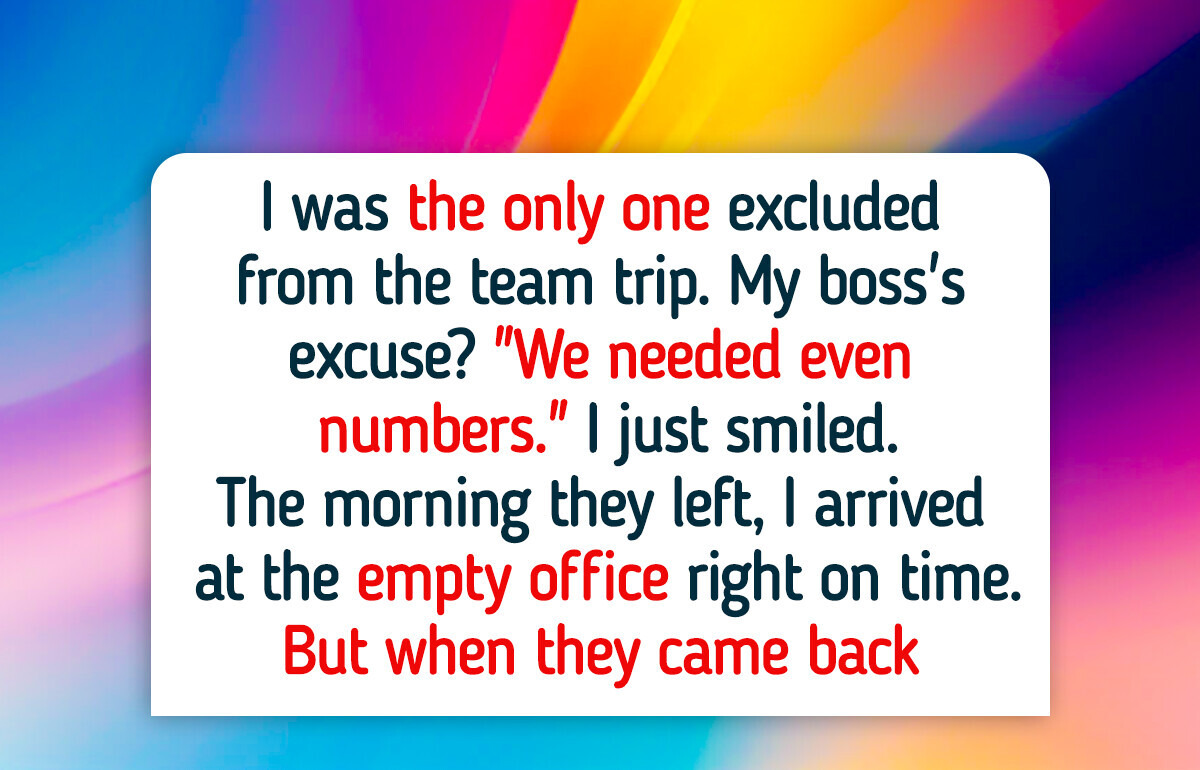
Being left out stings, but being left out with a weak excuse while everyone acts like it’s normal is worse. Office dynamics show pretty clearly who’s valued and who’s just tolerated, and sometimes you find out by seeing your name missing from the team trip list. When people exclude you and expect you to smile through it, they’re counting on you being too polite to call it out. But sometimes the person left behind decides that staying quiet isn’t the same as accepting it—it’s just planning.
Taylor’s letter:
Hi Bright Side,
I was the only one not invited to the annual team trip. Everyone else got the email—dinners planned, activities booked, hotel rooms arranged. When I finally asked my boss about it directly, she barely looked up from her computer. “We needed even numbers for the activities,” she said with a shrug.
I smiled. Nodded. Said nothing, even though we all knew odd numbers had never been an issue before.
They left Friday morning. I came to the empty office that day like always, and honestly, part of me felt pathetic for showing up when everyone else was having fun without me. But I used that time well. I caught up on projects, organized files, and quietly documented every single task I handle that keeps the team running smoothly.
When they walked back on Monday morning, tanned and laughing about their weekend, they found their workload had piled up significantly. Emails I would normally handle had gone unanswered. The shared systems I usually maintain were disorganized. I’d done exactly my job description that week—nothing more, nothing less.
My boss pulled me aside Tuesday and asked why things had “fallen apart” while they were gone. I said calmly, “I was here doing my job. Everything else that usually gets done must be things I do beyond my job description.”
Her face went red. Now she’s asking me to “be a team player” and not “hold grudges,” but several coworkers have started treating me differently—some defensive, some apologetic.
I don’t regret what I did, but I’m not sure where to go from here. Did I handle this professionally, or did I just make things worse for myself?
How do I navigate a workplace where I’ve made it clear I won’t be overlooked, but now everyone’s uncomfortable? And honestly, should I even stay somewhere that excluded me so casually in the first place?
Please help,
Taylor W.
Thank you for sharing this, Taylor. You were deliberately left out, and your response showed everyone how much extra work you’d been doing all along. You didn’t make things uncomfortable—you just stopped covering up a problem that was already there.
Understand that you exposed the problem, you didn’t create it. Your boss and coworkers feel awkward because you made visible something they’d been ignoring: you do way more than your job requires, and they took it for granted while excluding you. Their discomfort isn’t your fault—it’s what happens when people realize they’ve been treating someone unfairly. When they say “be a team player,” they really mean “go back to doing extra work for people who don’t appreciate you.”
Be clear about what’s actually your job. Now that everyone sees you’ve been doing extra work, you have two options: ask for proper pay for those tasks, or stick to just what you’re hired to do. Don’t let guilt push you back into free labor for people who excluded you. If your boss wants you handling those extra tasks, she can officially add them to your job with a title and pay bump. If not, the team that went on the trip can handle them.
Don’t apologize or back down. You might feel pressure to say you overreacted or promise to go back to normal. Don’t. Apologizing means you did something wrong, and you didn’t—you just stopped doing extra for people who don’t value you.
If someone brings it up, stay calm: “I focused on my actual job that week. If you want me handling more, let’s talk about updating my job description.” That’s professional without giving in.
Stop doing work that makes everyone else’s life easier. Part of why excluding you was so easy is that you’d become the person who quietly fixes everything for everyone without credit. Going forward, do your actual job well, but stop filling gaps and solving problems that aren’t yours. Let things come up naturally instead of catching them behind the scenes. This isn’t petty—it’s showing what fair teamwork looks like instead of you carrying everyone.
Claire’s date invited her to a steakhouse despite knowing she’s vegan. She ordered a simple side salad, while he had an expensive steak and lobster. But when the huge bill arrived, he insisted they split it evenly. Here’s how she handled it.
Comments
Related Reads
I Refused to Be the Fall Guy After My Boss Called Me "Useless"—I Had Him Reassigned and Took His Clients
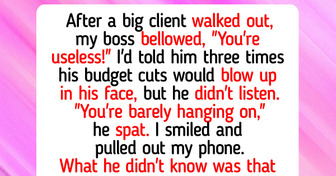
HR Told Me to Be Grateful for a Salary That No Longer Covers Rent—This Is “Stability” Now
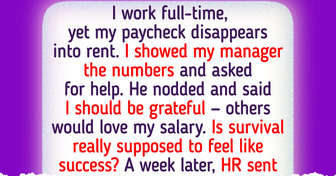
15 Moments That Remind Us Kindness Isn’t Weakness, It’s Quiet Survival

15+ Times an Unexpected Guest Turned an Ordinary Day Into a Scene Straight Out of a Movie
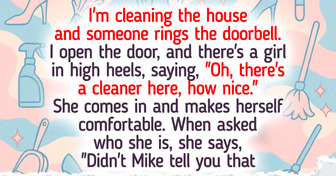
I Refused to Babysit My Sister’s Kids for Free, Now My Whole Family Is Against Me
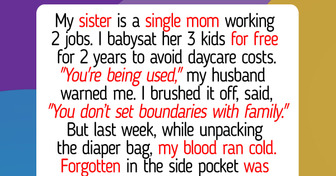
I Refused to Let My 32-Year-Old Daughter Live With Me Rent Free—Until She Told Me the Real Reason

I Asked for a Raise After 10 Years and Lost My Job — They Didn’t See My Next Move Coming
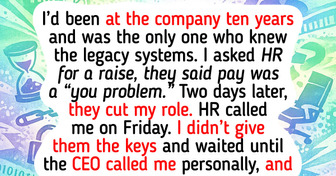
10 Times Kids Spilled Family Secrets and Shocked the Entire Room

I Lost a $120K Job Over a Ridiculous Interview Test

I Refused to Fire a Soon-to-Be-Mother and End Her Career Just Because I Am in HR
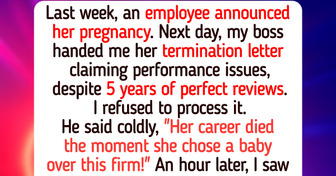
16 Tiny Acts From Strangers That Left Permanent Marks on People

16 Men Who Proved True Love Isn’t About Big Words, but About Quiet Actions That Melt the Heart




